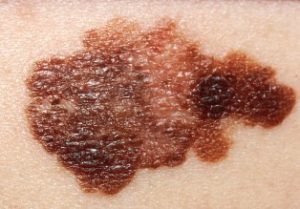Skin cancer is the most common type of cancer experienced by people all over the world. With it being so common, it pays to know what causes it and how to spot it early enough to avoid advancement.
Types of skin cancer
Knowing the type of skin cancer you or a loved one has is important since it will affect your treatment. It has five types: basal and squamous cell, melanoma, Merkel cell, lymphoma, and Kaposi sarcoma skin cancer.
1. Basal and squamous cell cancer
This is very common but also highly treatable cancer often develops in areas often exposed to the sun such as arms, neck, and head.
2. Melanoma skin cancer
This type of cancer starts in the melanocytes, a specific type of skin cell. It is highly common on the chest and back in men, and legs in women.

3. Merkel cell skin cancer
This rather uncommon type of cancer forms when the Merkel skin cells start to grow out of control.
4. Lymphoma of the skin
This type of cancer starts in the lymphocytes which are found in the immune system
5. Kaposi sarcoma
This develops from the cells lining the blood vessels or lymph.
Each of these types has different causes, signs, and treatments. However, there are some factors that increase a person’s chances of developing skin cancers.
Risk Factors
Fair skin
Fair-skinned people have less melanin in their skin, which means less protection from UV radiation.
People with light-colored eyes, blond or red hair, freckles, and history of quick sunburns are more prone to this type of cancer.
Too much sun exposure
Too much time under the sun and even tanning lights will increase your chances of developing cancer of the skin, especially if you don’t wear sunblock.
Family history
If you have a first-degree relative with a history of skin cancer, you may be at a higher risk.
Weakened immune system
People with weak immune system, such as those with HIV/AIDS, are more likely to develop skin cancer.
Exposure to radiation
Those who underwent radiation treatments, such as those for acne and eczema may have a higher risk of developing basal cell carcinoma.

Diagnosis and treatment
If you suspect that you or your loved one has a skin cancer, it’s important to see a doctor. Your doctor will perform tests to determine if the condition is indeed cancer and what type of cancer it is. The treatment will be influenced by how far it has grown or spread, where it is located, and the stage of cancer.
Surgery
This is the main treatment for skin cancer and is the only treatment that most people need. Surgery involves an injection of a local anesthesia and the removal of the tumor.
Radiotherapy
Radiotherapy is used if it has spread widely, has reached the lymph nodes, and it’s in an area that’s tricky to operate on. It will also reduce the risk of a relapse.
Chemotherapy
In some cases, a chemotherapy cream is used for solar keratosis and cancers that are only on the top layer of the skin.
Seeking help as soon as you suspect a skin cancer is vital to successful treatment. Always be on guard for unusual signs on your skin and see the doctor for further help.

